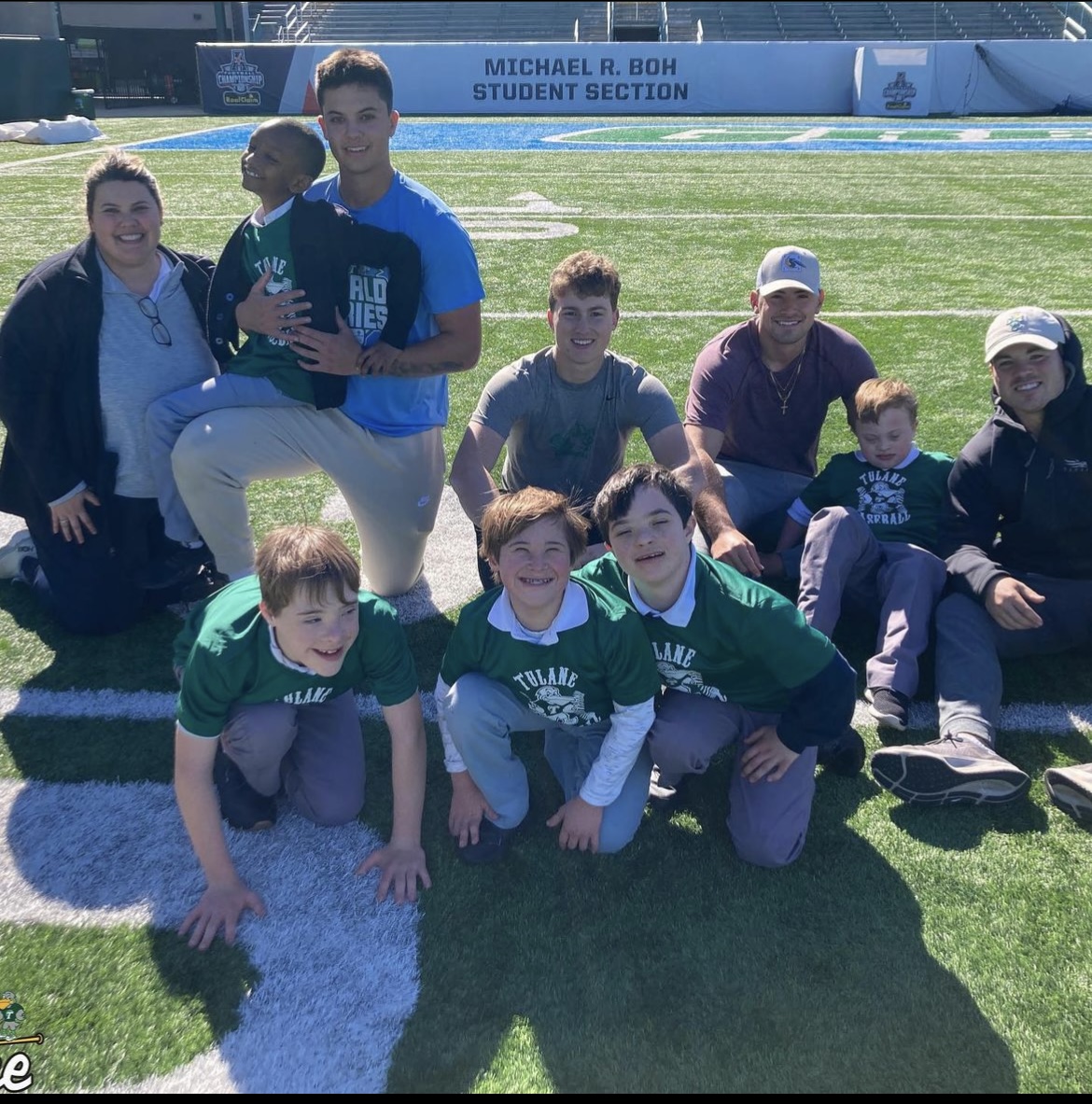The CDC defines an intellectual disability as “a term used when there are limits to a person’s ability to learn at an expected level and function in daily life.” Individuals with intellectual disabilities have problems associated with intellectual functioning (learning, problem solving) and adaptive functioning (activities of daily life, communication, independent living). The causes of intellectual disabilities –like the levels of impairment – vary. Causes for intellectually disable include Down Syndrome, genetic conditions, birth defects, or infections. But simply defining people with this condition by merely pointing out their limitations, really does not tell the whole story of kids and adults with intellectual disability. If you ever have the pleasure to meet one of these incredible humans, you will know that children and adults with intellectual disabilities are the sweetest, most kind people on this earth, with the biggest hearts. The love they exude has no boundaries or limitations, but they are often faced with numerous conditions that go along with this life-long disability.

Photo by: Curtis Akey
One of the main struggles that people recognize in intellectually disabled people is their cognitive ability. However, they often face other conditions that co-occur with their disability. Some mental health or neurodevelopmental conditions can co-exist with an intellectual disability. Often individuals also suffer from autism spectrum disorder, cerebral palsy, epilepsy, depression or anxiety. In “Health Conditions and Their Impacts among Adolescents and Young Adults with Down Syndrome”, the authors give an overview of what a person’s life is like as an adolescent with Down Syndrome. The studies show that kids with Down Syndrome experience many health deficiencies that add onto their cognitive struggles, making their lives much more difficult. Some of the health problems that were prevalent in those with Down Syndrome include “eye and vision problems, ear and hearing problems, cardiac and respiratory problems, musculoskeletal conditions, body weight issues, and mental health conditions.” These obstacles are most detrimental in the classroom.
Significant medical monitoring is needed with kids and adults with Down Syndrome because of their vulnerability to these various conditions. The authors noted “Monitoring and screen for health conditions among young adults with Down Syndrome is important due to the number of conditions that occur among this group. This will assist with developing management plans and strategies to avoid long-term consequence”.
Mental health problems are also prevalent among kids and adults with intellectual disabilities. According to the CDC, mental health effects about 1 and 25 Americans. For kids and adults with an intellectual disability, it is estimated that that number increases tremendously to 30-50 percent of adults and kids with intellectual disability also suffering from a mental health condition. Often, parents and caregivers of these kids have no idea that their kid is experiencing issues with mental health. Children with Down Syndrome and Autism are extremely susceptible to mental health problems because they tend to be on an emotional roller-coaster. Mental health conditions sometimes goes undiagnosed because of the limited communication skills of the individual with an intellectual disability. In addition, the parents of individuals with intellectual disabilities also have a higher incidence of mental health issues because of the stress associated with caregiving. In “Parenting- Children with Special Needs”, Boston University talks about the fears of the parents with parents having thoughts like, “the child’s pain and suffering, the child’s future, or the question of whether you are doing enough or doing the right things to help the child”. All parents of disabled kids deal with these fears and uncertainties on a daily basis, which can lead to depression and other mental health problems.

Photo By: Curtis Akey
Over the past several months, I was given the opportunity to work with an organization and school, that is now near and dear to my heart. St. Michael’s Special School, located in the heart of New Orleans, is a school consisting of only intellectually disabled students. The school’s mission statement notes that “The Sacred Mission of St. Michaels Special School is to provide a Catholic Education environment where students with intellectual and developmental disabilities are able to grow in faith and reach their full potential academically, socially, and physically.” After visiting these kids and developing a relationship with them, it is hard not to fall in love. The joy and excitement that these kids wake up with everyday puts a smile on my face. I can’t imagine what their lives are like, but they show up every day with a big smile on their face and a positive attitude. Their positive attitudes really hit home with me. I am a collegiate athlete at one of the topic institutions in America. Why should I be down on myself, or why should I have a bad attitude? Volunteering at St. Michael’s Special School made me understand how good I have it and that I shouldn’t take anything for granted whether it is good or bad, because these kids have it way worse than me and they continue to make the most of their situation. I also need to commend all the amazing teachers and staff that work at St. Michaels. Their call to service and education is inspirational. This school is truly a special place, and I strongly advise you to visit if you haven’t been before because it might change your perspective on life.

Photo by: Curtis Akey
 NOLAbeings
Multimedia artist Claire Bangser created NOLAbeings as a portrait-based story project that marries...
NOLAbeings
Multimedia artist Claire Bangser created NOLAbeings as a portrait-based story project that marries...
 Data corner: Adobe Suite (create a PDF, social media graphic, presentation, edit a photo and video
Data corner is where you go to work with analytics and top tech skills. It takes on everything from PERL and SQL to Canva and Sprout Social.
Data corner: Adobe Suite (create a PDF, social media graphic, presentation, edit a photo and video
Data corner is where you go to work with analytics and top tech skills. It takes on everything from PERL and SQL to Canva and Sprout Social.
